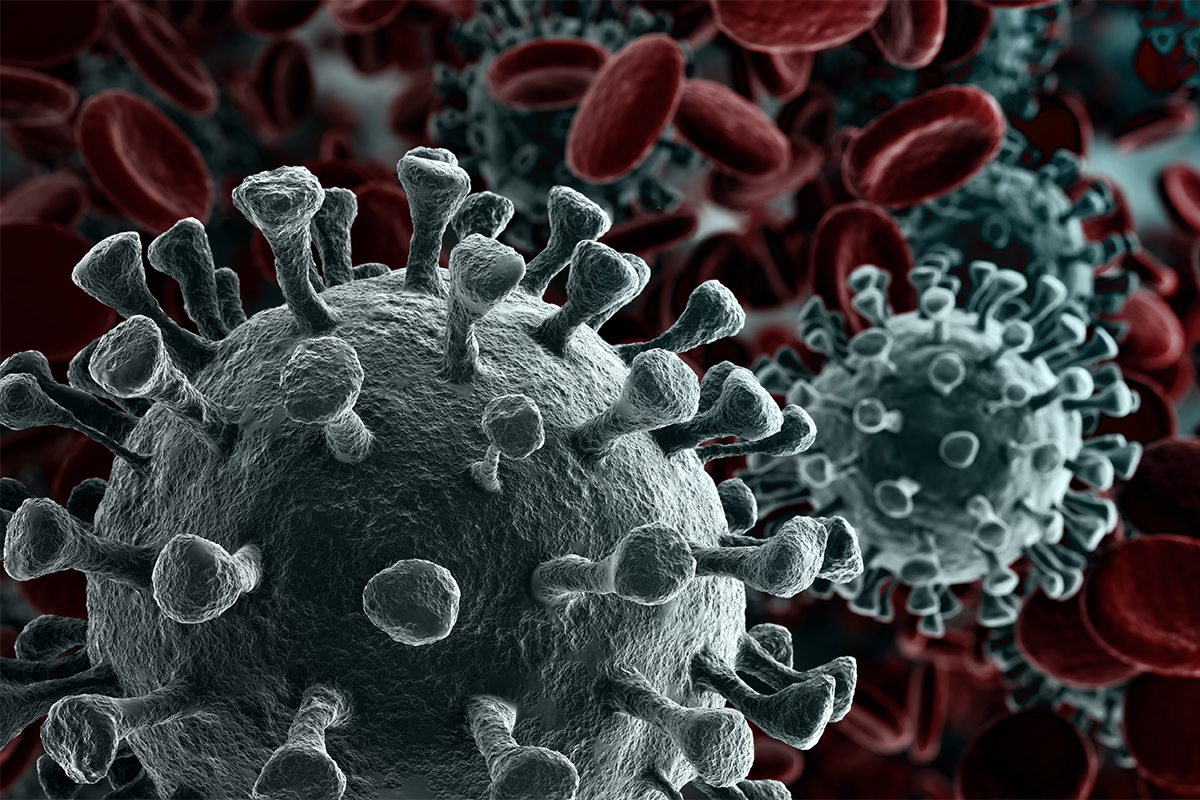ACC President Message: ACC Issues COVID-19 Clinical Guidance For the CV Care Team
 Richard J. Kovacs, MD, FACC
Richard J. Kovacs, MD, FACC
As we all work together on the front lines to best serve our patients and lead COVID-19 response planning for our institutions, I want to share with you the updated ACC Clinical Bulletin providing COVID-19 Clinical Guidance For the Cardiovascular Care Team.
This resource provides an overview of COVID-19, and outlines what's currently known from the published literature about the acute cardiac complication of COVID-19 and its implications for patients with underlying cardiovascular conditions. It also includes clinical guidance given current COVID-19 uncertainty, as well as recommendations for cardiac-specific preparedness.
Among the recommendations:
- Make plans for quickly identifying and isolating cardiovascular patients with COVID-19 symptoms from other patients, including in the ambulatory setting
- It is reasonable to advise all cardiovascular patients of the potential increased risk and to encourage additional, reasonable precautions in accordance with CDC guidance
- It is important for patients with CVD to remain current with vaccinations, including the pneumococcal vaccine given the increased risk of secondary bacterial infection with COVID-19; CVD patients should be vaccinated against influenza in accordance with current ACC/AHA guidelines
- In geographies with active COVID-19 outbreaks, it may be reasonable to substitute telephonic or telehealth visits for in-person routine visits for stable CVD patients to avoid possible nosocomial COVID-19 infection; planning for emergency telehealth protocols should begin now
- For patients with heart failure or volume overload conditions, copious fluid administration for viral infection should be used cautiously and carefully monitored
- General immunological health remains important for both providers and patients, including eating well, sleeping and managing stress

In terms of cardiac-specific preparedness, the Clinical Update notes that "in some settings, the cardiovascular care team (including physicians, nurses, technicians, etc.) may have limited training and experience with the acute management of pandemic disease; the routine transmission of COVID-19 to health care workers suggests that everyday infectious disease mitigation precautions are insufficient and health care workers in outbreak geographies must be prepared to adopt personal protection measures.
Training in use of personal protective equipment should start now! In addition, specific protocols should be developed for the management of AMI in the context of a COVID-19 outbreak, both for patients with and without a COVID-19 diagnosis. Read the complete update. Also, don't miss this feature in the March issue of Cardiology magazine.
In addition to the Clinical Update, the ACC joined with the American College of Physicians this week to urge policymakers to "consider the important role digital and telehealth services can play to mitigate community spread while allowing clinicians to continue caring for patients."
This effort was rewarded, with the inclusion of a measure that would increase access to telemedicine services and protect vulnerable patient populations during the COVID-19 emergency as part of the $8.3 billion bipartisan emergency funding package passed by the House and Senate. The legislation is awaiting signature by President Trump.
As always, thank you for your work and advocacy every day on behalf of our patients.
Sincerely,
Richard J. Kovacs, MD, FACC
ACC President
Clinical Topics: Acute Coronary Syndromes, Anticoagulation Management, Arrhythmias and Clinical EP, Cardiac Surgery, Congenital Heart Disease and Pediatric Cardiology, Diabetes and Cardiometabolic Disease, Dyslipidemia, Geriatric Cardiology, Heart Failure and Cardiomyopathies, Invasive Cardiovascular Angiography and Intervention, Noninvasive Imaging, Pericardial Disease, Prevention, Pulmonary Hypertension and Venous Thromboembolism, Sports and Exercise Cardiology, Stable Ischemic Heart Disease, Valvular Heart Disease, Vascular Medicine, Anticoagulation Management and ACS, Implantable Devices, SCD/Ventricular Arrhythmias, Atrial Fibrillation/Supraventricular Arrhythmias, Cardiac Surgery and Arrhythmias, Cardiac Surgery and CHD and Pediatrics, Cardiac Surgery and Heart Failure, Cardiac Surgery and SIHD, Cardiac Surgery and VHD, Congenital Heart Disease, CHD and Pediatrics and Arrhythmias, CHD and Pediatrics and Imaging, CHD and Pediatrics and Interventions, CHD and Pediatrics and Prevention, Acute Heart Failure, Pulmonary Hypertension, Interventions and ACS, Interventions and Imaging, Interventions and Structural Heart Disease, Interventions and Vascular Medicine, Angiography, Nuclear Imaging, Hypertension, Sleep Apnea, Sports and Exercise and Congenital Heart Disease and Pediatric Cardiology, Sports and Exercise and ECG and Stress Testing, Sports and Exercise and Imaging, Chronic Angina
Keywords: Acute Coronary Syndrome, Anticoagulants, Arrhythmias, Cardiac, Cardiac Surgical Procedures, Metabolic Syndrome, Angina, Stable, Heart Defects, Congenital, Dyslipidemias, Geriatrics, Heart Failure, Angiography, Diagnostic Imaging, Pericarditis, Secondary Prevention, Hypertension, Pulmonary, Sleep Apnea Syndromes, Sports, Angina, Stable, Exercise Test, Heart Valve Diseases, Aneurysm
< Back to Listings

